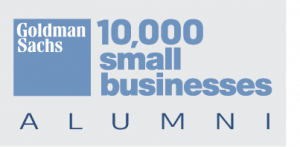While the height of lockdown may seem a lifetime ago now, its long-term effects have not gone unnoticed. One of the most pertinent revelations during the pandemic was the digital divide – and just how vast this is between the most and least privileged in society.
The digital divide refers to the inequalities around digital access in the modern day. It can be anything from lack of tools to internet connections, and some of Britain’s most vulnerable people lack both.
As outlined in our Shining A Light on MDUs guide, the statistics are truly eye-opening:
- One in five UK households with an annual income of <£25,000 have no internet access
- 9% of households with children don’t have access to a laptop, desktop PC or tablet
- 16% of UK residents cannot carry out basic digital tasks such as opening a browser.
How Code powers can help Britain’s MDUs
At Trenches Law, we believe that everybody in the UK deserves access to high-speed broadband. Our research has shown that, in particular, people living in multi-dwelling units (MDUs) are adversely affected.
More than one-fifth of UK residents live in a flat, maisonette or apartment. Despite this high figure, residents in these buildings face more obstacles than most – including poor communication with landlords. Approximately four in 10 broadband installation requests are blocked due to a lack of responses from landowners.
This is where Code powers can intervene. With these, telecommunications providers will have similar privileges to other utilities, in particular:
- Building and maintaining infrastructure on public land without specific licences
- Immunity from Town and Country Planning legislation that may impede internet access
- Court intervention for wayleave requests if landowners cannot be reached.
Under the Electronic Communications Code, this means that telecoms providers recognised by Ofcom can enjoy these privileges.
Benefits for MDU dwellers
The biggest benefit this will bring about is a more connected life for Britain’s MDU dwellers. Faster internet access will help Britain’s most underprivileged communities access public services. These include job applications, mental and physical health, and public transport. It will also keep people connected to their loved ones to improve their social wellbeing.
Benefits for landowners
By liaising directly with telecoms companies, we can help to push multi-fibre in building solution projects forward. This will help to increase the value of properties and save time and costs on needless paperwork. Landlords will benefit from happier tenants and less disruption to their properties.
Benefits for operators and freeholders
Operators and freeholders will get impartial advice, helping to get broadband projects off the ground. In turn, this will control costs and help to meet customer acquisition targets.
Keep your finger on the pulse with our Code powers application, here.
We began our application to Ofcom on Tuesday 5th September 2023. The application will last for 30 days and will help us in our mission to provide high-quality broadband for everyone. You can find out more about our mission here. We’re committed to making complex deployments in MDUs hassle-free. Our teams will act as a neutral intermediary to streamline the process.
Find out more about our code powers application
Hear more from Trenches Law at Connected Britain
Keen to learn more about the digital divide? Trenches Law is back once again at Connected Britain, taking place at ExCeL London from Wednesday 20th to Thursday 21st September. We’ll be exhibiting at stand number five. Come and see us for more insights into the wayleave process, including how it’s helping to get Britain connected.






